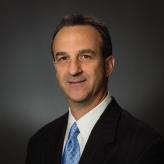Broad support for prayer reflected in numerous briefs at Supreme Court
WASHINGTON — The U.S. Supreme Court has received 26 friend-of-the-court briefs in support of the freedom of Americans to pray as the nation’s founders did before public meetings. The briefs include support from the U.S. Department of Justice, attorneys general representing half the states in the union, numerous senators and members of Congress, and a wide array of constitutional scholars, theologians, counties and municipalities, religious liberty groups, and others.
On May 20, the high court agreed to hear a New York case concerning the matter, but the court potentially could use the case as a means to clarify or reinforce constitutional standards on a wide array of Establishment Clause and religious freedom cases. Alliance Defending Freedom attorneys together with lead counsel Thomas G. Hungar of the Washington, D.C. law firm Gibson, Dunn & Crutcher, LLP represent the town of Greece, N.Y.
“Americans today should be as free as the Founders were to pray,” said Senior Counsel David Cortman. “The Founders prayed while drafting our Constitution’s Bill of Rights, and the Supreme Court has ruled that public prayer is part of the ‘history and tradition of this country.’ The numerous and significant parties that have filed briefs in this case support the continuation of this cherished practice.”
The court last affirmed America’s long-standing practice of opening public meetings with prayer in 1983 and now has the opportunity to do so again.
As briefs filed in the case explain, the U.S. Supreme Court settled the matter 30 years ago by affirming that the historical practice of legislative prayers is constitutional. Until relatively recently, the lower federal courts faithfully implemented that well-established rule of law. New legal attacks by individuals and activist groups claiming to be offended by the way private citizens voluntarily pray have created significant confusion in the lower courts.
In this case, Town of Greece v. Galloway, the U.S. Court of Appeals for the 2nd Circuit suggested that the current legal complexity may cause local and state governments to abandon the practice of legislative prayer, which predates the founding of America and existed for more than two centuries without serious challenge.
- Pronunciation guide: Hungar (HUNG’-ahr)
Alliance Defending Freedom is an alliance-building, non-profit legal organization that advocates for the right of people to freely live out their faith.
# # # | Ref. 21305
Related Profiles

